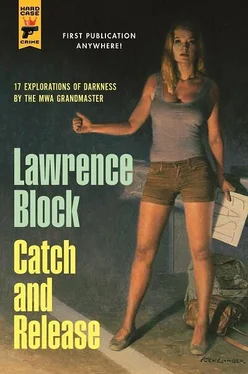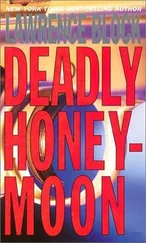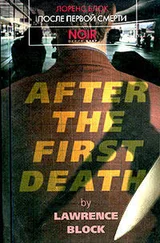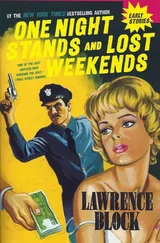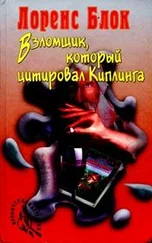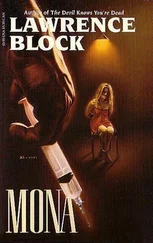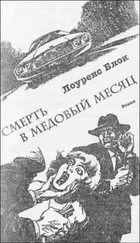And so on.
Jack Walker had been a criminal himself, in a slipshod amateurish sort of way. The boys followed in his footsteps, but improved on his example. They were professionals from very early on, and you would have to say they were good at it. They weren’t Raffles, they weren’t Professor Moriarty, they weren’t Arnold Zeck, and God knows they weren’t Willie Sutton or Al Capone. But they made a living at it and they didn’t get caught, and isn’t that enough for us to call them successful?
They always worked together, and more often than not they used other people as well. Over the years, they tended to team up with the same three men. I don’t know that it would be precisely accurate to call the five of them a gang, but it wouldn’t be off by much.
One, Louis Creamer, was a couple of years older than the Walkers — George, I should mention, was himself a year and a half older than his brother Alan. Louis looked like a big dumb galoot, and that’s exactly what he was. He loved to eat and he loved to work out with weights in his garage, so he kept getting bigger. It’s hard to see how he could have gotten any dumber, but he didn’t get any smarter, either. He lived with his mother — nobody knew what happened to the father, if he was ever there in the first place — and when his mother died Louis married the girl he’d been keeping company with since he dropped out of school. He moved her into his mother’s house and she cooked him the same huge meals his mother used to cook, and he was happy.
Early on, Louis got work day to day as a bouncer, but the day came when he hit a fellow too hard, and the guy died. A good lawyer probably could have gotten him off, but Louis had a bad one, and he wound up serving a year and a day for involuntary manslaughter. When he got out nobody was in a rush to hire him, and he fell in with the Walkers, who didn’t have trouble finding a role for a guy who was big and strong and did what you told him to do.
Eddie O’Day was small and undernourished and as close as I’ve ever seen to a born thief. He got in trouble shoplifting as a child, and then he stopped getting into trouble, not because he stopped stealing but because he stopped getting caught. He grew up to be a man who would, as they say, steal a hot stove, and he’d have it sold before it cooled off. He was the same age as Alan Walker, and they’d dropped out of school together. Eddie lived alone, and was positively gifted when it came to picking up women. He was neither good-looking nor charming, but he was evidently seductive, and women kept taking him home. But they didn’t keep him — his relationships never lasted, which was fine as far as he was concerned.
Mike Dunn was older than the others, and had actually qualified as a schoolteacher. He got unqualified in a hurry when he was caught in bed with one of his students. It was a long ways from pedophilia — he was only twenty-six himself at the time, and the girl was almost sixteen and almost as experienced sexually as he was — but that was the end of his teaching career. He drifted some, and the Walkers used him as a lookout in a drugstore break-in, and found out they liked working with him. He had a good mind, and he wound up doing a lot of the planning. When he wasn’t working he was pretty much a loner, living in a rented house on the edge of town, and having affairs with unavailable women — generally the wives or daughters of other men.
The Walkers and their associates had a lot of different ways to make money, together or separately. George and Alan always had some money on the street, loans to people whose only collateral was fear. Louis Creamer did their collection work, and provided security at the card and dice games Eddie O’Day ran. George Walker owned a bar and grill, and sold more booze there than he bought from the wholesalers; he bought from bootleggers and hijacked the occasional truck to make up the difference. We knew a lot of what they were doing, but knowing and making a case aren’t necessarily the same thing. We arrested all of them at one time or another, for one thing or another, but we could never make anything stick. That’s not all that unusual, you know. They say crime doesn’t pay, but they’re wrong. Of course it pays. If it didn’t pay, the pros would do something else.
And the Walkers were pros. They weren’t getting rich, but they were making what you could call a decent living, but for the fact that there was nothing decent about it. They always had food on the table and money under the mattress (if not in the bank), and they didn’t have to work too hard or too often. That was what they’d had in mind when they chose a life of crime. So they stayed with it, and why not? It suited them fine. They weren’t respectable, but neither was their father, or his father before him. The hell with being respectable. They were doing okay.
The years went by and they kept on doing what they were doing, and doing well at it. Jack Walker drank himself to death, and after the funeral George put his arm around his brother and said, “Well, the old bastard’s in the ground. He wasn’t much good, but he wasn’t so bad, you know?”
“When I was a kid,” Alan said, “I wanted to kill him.”
“Oh, so did I,” George said. “Many’s the time I thought about it. But, you know, you grow older and you get over it.” And they were indeed growing older, settling into a reasonably comfortable middle age. George was thicker around the middle, while Alan’s hair was showing a little gray. They both liked a drink, but it didn’t have the hold on them it had had on their father and grandfather. It settled George down, fueled Alan, and didn’t seem to do either of them any harm.
And this wouldn’t be much of a story, except for the fact that one day they set out to steal some money, and succeeded beyond their wildest dreams.
It was a robbery, and the details have largely faded from memory, but I don’t suppose they’re terribly important. The tip came from an employee of the targeted firm, whose wife was the sister of a woman Mike Dunn was sleeping with; for a cut of the proceeds, he’d provide details of when to hit the place, along with the security codes and keys that would get them in. Their expectations were considerable. Mike Dunn, who brought in the deal, thought they ought to walk off with a minimum of a hundred thousand dollars. Their tipster was in for a ten percent share, and they’d split the residue in five equal shares, as they always did on jobs of this nature. “Even splits,” George Walker had said early on. “You hear about different ways of doing it, something off the top for the guy who brings it in, so much extra for whoever bankrolls the operation. All that does is make it complicated, and give everybody a reason to come up with a resentment. The minute you’re getting a dollar more than me, I’m pissed off. And the funny thing is you’re pissed off, too, because whatever you’re getting isn’t enough. Make the splits even and nobody’s got cause to complain. You put out more than I do on the one job, well, it evens out later on, when I put out more’n you do. Meantime, every dollar comes in, each one of us gets twenty cents of it.” So they stood to bring in eighteen thousand dollars apiece for a few hours work, which, inflation notwithstanding, was a healthy cut above minimum wage, and better than anybody was paying in the fields and factories. Was it a fortune? No. Wealth beyond the dreams of avarice? Hardly that. But all five of the principals would agree that it was a good night’s work.
The job was planned and rehearsed, the schedule fine-tuned. When push came to shove, the pushing and shoving went like clockwork. Everything happened just as it was supposed to, and our five masked heroes wound up in a room with five of the firm’s employees, one of them the inside man, the brother-in-law of Mike Dunn’s paramour. And it strikes me that we need a name for him, although we won’t need it for long. But let’s call him Alfie. No need for a last name. Just Alfie will do fine.
Читать дальше
